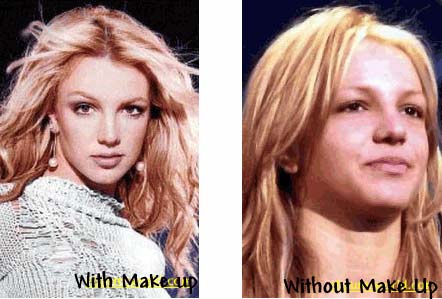Rexall Pharma Plus: Cosmetic bag clear out.

A second article from Rexall's Medicine Cabinet Clean Up March Promo.
Keep your makeup kit performing beautifully by purging expired products. Find out when you need to give the old heave-ho to your cosmetics.
Makeup, like medicine or milk, reaches a point when it's no longer good for you. When your favourite products expire, they stop performing well and can agitate your face. For example, past-its-prime foundation can trigger blemishes and aged mascara can cause eye infections. The tools you use, such as brushes and sponges, can also lead to the same problems if they're not adequately cleaned.
Keep your cosmetic bag tidied up to avoid the side effects of old products. Toss makeup when it expires, replacing old items with new ones, and properly care for your brushes and sponges. But before you go on a cleaning spree, there's some information you need, as cosmetics aren't labeled with best-before dates and brushes don't come with a how-to-maintain manual. Continue reading for the knowledge you need to keep your makeup bag healthy.
Best-before guidelines
To help you remember when to purge products, mark get-rid-of dates on a calendar. Here's how long makeup lasts from the time it's opened.
Mascara: It expires faster than all other cosmetics, as its dark and moist environment encourages the rapid growth of infection-causing bacteria, according to Vanessa McHugh, a makeup artist and Rexall's cosmetic category assistant. Get rid of it three months after opening, or before if it starts to dry out.
TIP: To ensure mascara meets its life expectancy, here's what McHugh recommends: "Never pump the wand when you take it out of the bottle, because it lets in air and makes the mascara dry out faster."
Foundation: Liquid types are fine to use for up to a year. You know it's time to throw foundation out when the colour separates or it smells off, says McHugh. Face powders or powder foundations have double the longevity, lasting two years if their applicators are properly cared for (instructions below).
TIP: If you apply liquid foundation with your fingers, wash your hands first, she advises. Doing so minimizes the transfer of bacteria, which naturally lives on your skin, into the product. Bacteria can multiply quickly in liquid formulations, and overgrowth leads to skin problems such as pimples.

Lipstick & Lipgloss: These products can stay healthy for approxamitely two years, but they sometimes turn before then. "If it starts smelling or the lipgloss (colour) starts to separate, throw it out," says McHugh.
TIP: Clean after each use to help the product last longer. Wipe down the lipstick's tip or the lipgloss's wand with a tissue dampened with rubbing alcohol, which kills bacteria.
Eyeshadow: Dry powders last up to two years, says McHugh, whereas cake shadows (or any type that is moist) are good for six months.
TIP: Keep your powdered shadow working well throughout its life by removing any patches that have changed colour. "Take a toothbrush and scrape off that first layer (of altered pigment)," she says.
Liner: Eye and lip pencils have a shelf life of up to one year, but liquid eyeliners expire within six months. Like mascara, drying up is a telltale sign that the liquid liner has to go.
TIP: To keep your pencils healthy for the year, sharpen them after each use to remove bacteria, McHugh advises.
Blush: Powder blushes last for approxamitely two years, whereas cream blushes keep for one year. If your powder product cracks up or changes colour before then, toss it out.
TIP: Help ensure your cream blush's longevity by applying it with clean hands, McHugh says. And regularly wipe off the top layer with a tissue to get rid of bacteria.
Brush up on cleaning
It's important to clean cosmetic applicators to prevent bacteria from proliferating. (What's on your brushes gets passed onto product and then onto your face.) Plus, regular washes allow you to apply the purest shade of makeup. "It's especially important if it's an eyeshadow brush, since you're always dipping into different colours," says McHugh. Here's how to take care of your applicators.
Brushes: If you use a brush for liquid foundation, wash it after every use. All others should be cleaned once a week. How you disinfect depends on the type of brush. Using a spray bottle containing rubbing alcohol, spray synthetic-hair brushes three times. Once all hairs are damp, wipe them off with a clean towel, says McHugh. Wash natural-hair applicators in a solution of water and antibacterial soap or baby shampoo. Massage the brush for a few moments, then rinse until the water runs clear, she says. Allow brushes to air-dry, then store them in a dry place.
Sponges: While brushes can last years with good care, sponges have a much shorter stay-around time. "You can use a sponge for a month if you wash it with antibacterial soap everyday," says McHugh. Suds up your sponge with any type of germ-killing soap in your home. Rinse, then let it air dry before re-using. Remember to store them in a dry environment. Alternatively, toss out a sponge after a couple of uses (one application per side) and buy new ones - they're inexpensive - at your local Rexall pharmacy.
Lastly, be sure to clean out your cosmetic case or bag whenever you tend to your brushes. "It's not very hygienic to put your clean brushes back into the same makeup bag," says McHugh. Cloth bags are often machine washable, and you can disinfect cases by wiping them down with rubbing alcohol.